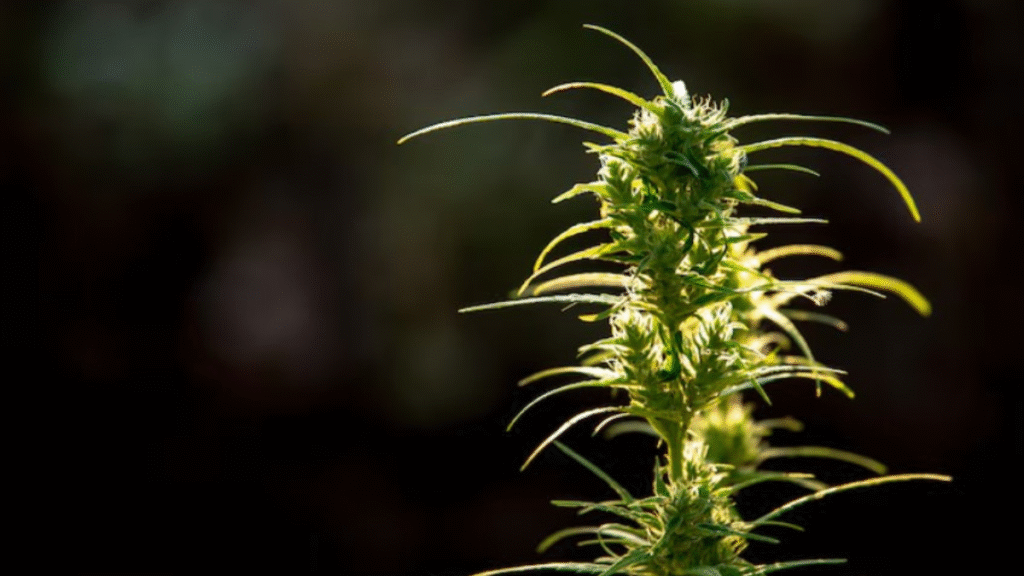What Is THCA Flower?
THCA flower refers to cannabis buds naturally high in tetrahydrocannabinolic acid, the acidic precursor to THC found in unheated and raw cannabis. THCA is gaining popularity for its wellness potential while not producing the psychoactive effects typically associated with smoking or vaping THC products. This makes THCA flower an intriguing choice for those looking to explore cannabis in a more natural, unaltered form.
Unlike other cannabis flower varieties that are purpose-bred for high THC content and recreational effects, THCA flower tends to appeal to users interested in the plant’s non-psychoactive benefits. Consumers frequently look toward THCA flower as a product that aligns with holistic wellness routines, offering an avenue for enjoying cannabis that maintains many of the plant’s raw, foundational compounds.
How Does THCA Differ From THC?
The primary difference between THCA and THC lies in their chemistry and their effects on the body. THCA itself is a non-intoxicating cannabinoid present in fresh cannabis. It only converts to psychoactive THC through heat exposure, a process called decarboxylation, typically occurring when smoking, vaping, or cooking cannabis. This conversion process is key for anyone seeking a specific type of experience, as consuming raw THCA flower won’t deliver a traditional “high.”
This distinction is central to why THCA flower may be preferred by those interested in avoiding intoxicating effects while still engaging with cannabis’s therapeutic potential. The medicinal promise of raw THCA continues to inspire curiosity and research, especially for individuals looking for alternatives to conventional cannabis use.
Potential Benefits of THCA Flower
THCA is being studied for a spectrum of potential wellness advantages, with early animal and cell-based studies suggesting it may possess anti-inflammatory, neuroprotective, and antiemetic (anti-nausea) properties. Many users report incorporating raw THCA flower into their routines to address mild discomfort, promote joint and muscle health, or support inflammation regulation.
- Potential support for inflammation and pain management without intoxication.
- Emerging evidence for neuroprotective properties, with ongoing research into applications for brain health.
- Promising anecdotes from individuals using THCA to help with digestive health and nausea symptoms.
Clinical research is still catching up to consumer interest, and definitive benefits are yet to be fully understood. Nonetheless, these preliminary findings highlight the need for further scientific attention.
Ways to Use THCA Flower
THCA flower is a highly versatile product, as users can choose different methods to enjoy its benefits according to their wellness goals or preferences. Here are several common approaches:
- Raw Consumption: Adding THCA flower to juices, smoothies, or salads allows you to enjoy the benefits of THCA in its original, non-psychoactive state.
- Low-Temperature Vaporization: Vaporizing at low temperatures may help retain THCA content and provide a gentle, targeted experience. Many enthusiasts prefer using advanced tools such as an enail dab rig to achieve consistent temperature control and maximize benefits.
- Traditional Smoking: Note that high-heat consumption methods such as smoking or baking will activate THCA and convert it into THC, resulting in a psychoactive effect. Choose this method only if you desire the traditional “high.”
When experimenting with THCA flower, your chosen consumption method should align with the experience you are seeking, whether it’s the raw, natural effects or the activated potential of THC.
Legal Status and Considerations
THCA flower exists within a legal gray zone, as its legality depends heavily on your location and how local laws define cannabis and controlled substances. In many areas, regulations focus on delta-9-THC content, not THCA, because THCA is not inherently intoxicating. However, because THCA can be converted to THC, certain states and countries may treat THCA flower similarly to high-THC cannabis.
Always review your local regulations before purchasing, possessing, or consuming THCA flower. Regulatory environments are dynamic, and what’s permissible can change rapidly.
Safety Tips and Best Practices
Those new to THCA flower or any cannabis product should prioritize safety with a few practical steps:
- Begin with a minimal amount to gauge your body’s individual response.
- Choose lab-tested products to avoid potential contaminants like heavy metals, pesticides, or mold.
- Consult your healthcare provider, especially if you have underlying conditions or take medications.
- Store cannabis products securely away from children and pets to prevent accidental ingestion.
Responsible use and informed selection are key to an enjoyable, positive THCA flower experience.
Choosing Quality Products
As the marketplace for THCA flower continues to expand rapidly, the importance of establishing and maintaining high standards of quality assurance becomes more critical than ever before. When evaluating vendors and brands, always look for those that provide transparent and comprehensive sourcing information, detailed descriptions of cultivation practices, and up-to-date lab results for all their products. Reading independent reviews from other consumers and asking about third-party testing results can significantly help you identify reputable products that align closely with your specific needs, preferences, and safety standards. It is advisable to avoid sources that lack transparency, do not offer clear documentation regarding product safety and purity, or fail to provide reliable certification and testing information.
Final Thoughts
For those interested in exploring cannabis and its various effects without experiencing the classic intoxication often associated with THC, THCA flower stands out as a particularly compelling and intriguing choice. Its natural properties, along with its potential wellness benefits, make it a popular option for individuals engaging in holistic health routines, wellness practices, or simply seeking more control over their cannabis experience. By understanding the intricate chemistry of THCA, its range of benefits, and the current legal context surrounding it, you can confidently navigate your personal THCA journey and make informed choices that support both your safety and overall satisfaction.







